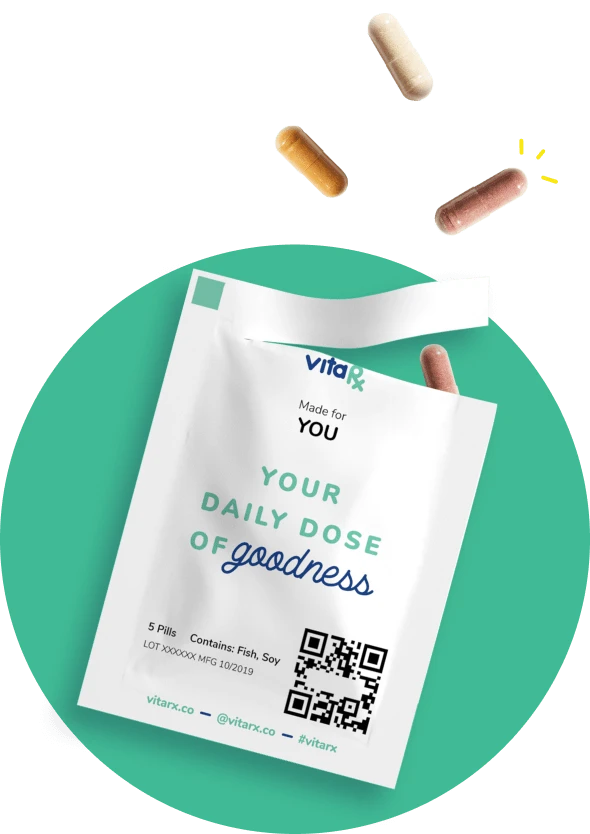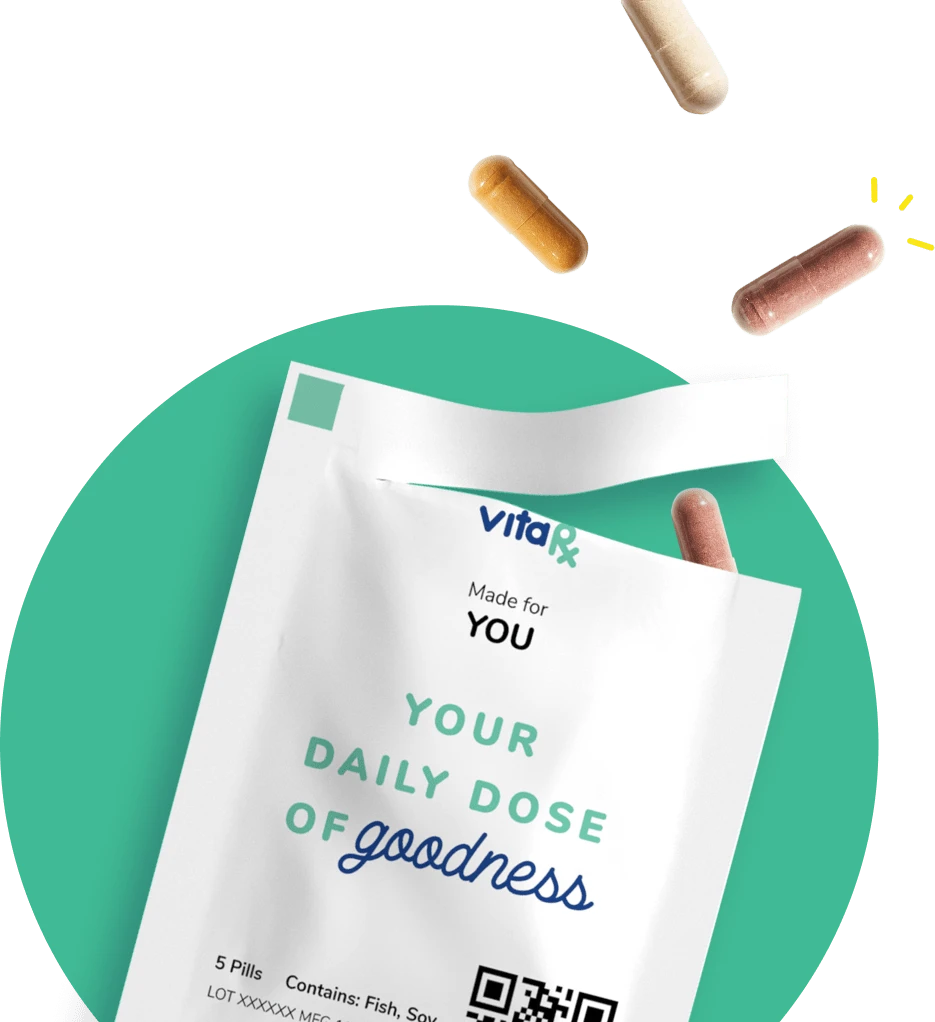Last update: December 25, 2024
Turmeric: The Complete Guide
Discover the potential health benefits, proper dosage, and safety considerations of turmeric supplements in our complete guide. Learn how this ancient spice may support wellness and find the best turmeric supplement for your needs.

By Derick Rodriguez, Associate Editor
Edited by Dr. Dimitar Marinov, MD, RDN, PhD

Key takeaways
- Turmeric, enriched with the active compound curcumin, exhibits potent anti-inflammatory effects and is packed with antioxidants, offering potential health benefits.
- Turmerics absorption may be enhance by pairing it with black pepper.
- Integrating turmeric into a balanced routine may contribute to a healthier lifestyle.
What is turmeric?
Turmeric is a vibrant, golden-colored spice derived from the rhizomes of a perennial herbaceous plant in the ginger family, Zingiberaceae. Native to the Indian subcontinent and Southeast Asia, turmeric has been a staple in traditional Indian cuisine and Ayurvedic medicine for centuries.
The plant's rhizomes are boiled, dried, and ground into a fine powder that boasts a warm, slightly bitter taste and a mustard-like aroma. This distinctive flavor and color, attributed to the active compound curcumin, make turmeric a key ingredient in many Asian dishes.
Turmeric has many uses
Beyond its culinary and medicinal uses, turmeric has a rich history as a natural fabric dye. Additionally, it's sometimes used in traditional Hindu weddings where it is applied to the bride and groom's skin as a blessing and to promote a radiant complexion.
Beyond its culinary uses, turmeric is renowned for its medicinal properties. Curcumin, a potent polyphenol, acts as a powerful antioxidant, anti-inflammatory, and antimicrobial agent. It promotes overall wellness by protecting cells from damage caused by environmental factors and supporting the body's natural balance.
The versatility of turmeric extends from the kitchen to traditional medicine, cementing its status as a spice with a rich history and numerous health benefits. Its unique combination of flavor, color, and medicinal properties makes it a valuable addition to both culinary and wellness practices around the world.
Where is turmeric found?
The turmeric plant thrives in the ideal tropical climate, characterized by heavy rainfall and abundant sunlight, which provides the perfect conditions for its cultivation. Today, it's primarily grown in several Asian countries, including:
- India: The largest producer, consumer, and exporter of turmeric worldwide. India has a long history of turmeric cultivation, with the spice being an essential part of the country's cuisine, traditional medicine, and cultural heritage.
- Bangladesh: The second-largest producer of turmeric. Turmeric is widely grown in the hilly regions of Bangladesh.
- China: China has expanded its turmeric cultivation in recent years to meet the growing demand for the spice in the food, beverage, and pharmaceutical industries.
- Thailand: In Thailand, turmeric is a key ingredient in many traditional dishes and is also used in traditional medicine and cosmetics.
Turmeric is also grown on a smaller scale in other tropical regions, such as the Caribbean islands, South America, the Pacific Islands, and Africa. Additionally, Due to the increasing global demand for turmeric, its cultivation has expanded to non-traditional growing regions, such as the United States (primarily in Hawaii) and Australia.
How does turmeric work in your body?
What are some benefits of turmeric?
Turmeric holds various properties that may contribute to overall well-being.
Reduces inflammation
Turmeric's active compound, curcumin, exhibits anti-inflammatory properties, modulating cytokines and enzymes, potentially contributing to reduced inflammation [3].
Supports antioxidant activity
Curcumin's antioxidant effects involve neutralizing free radicals, potentially reducing oxidative stress, and supporting overall cellular health [4].
Facilitates better joint health
Studies suggest that turmeric's anti-inflammatory properties may help modify proinflammatory cells, offering potential pain relief for people with inflammatory conditions [5].
Aids mental well-being
Turmeric may show promise in supporting mental health, with some studies indicating potential benefits for people dealing with symptoms of stress and anxiety [7].
Contributes to healthy kidney function
Some studies suggest that turmeric supplements may support improvements in kidney function for people with type 2 diabetes and end-stage renal disease [8].
Delivery methods
Turmeric supplements come in various delivery methods, each offering its own set of benefits and ways of consumption. Here's a brief overview of the different delivery methods:
Choose a method that fits your routine
Do not overlook the delivery method. turmeric supplements come in tablets, capsules, soft gel, chewable, powders, and liquid forms—choose the one that best fits your daily routine to stay consistent.
What to look for in turmeric supplements
When selecting a supplement, several key factors must be considered to ensure you choose a high-quality product that effectively supports your health goals and overall well-being.
Dosage and potency
The dosage of turmeric in supplements varies, so it's important to choose one that aligns with your specific needs. This includes considering your age, gender, and health status, like pregnancy or existing deficiencies. The turmeric formulation can impact its potency and bioavailability, which affects how effectively your body can absorb and use it.
Quantity and delivery method
The delivery method is crucial. Turmeric supplements come in various forms, including tablets, capsules, powders, chewables, and liquid forms. Your choice may depend on factors like ease of swallowing, convenience for traveling, or personal preference regarding taste and texture. Also, evaluate the quantity of turmeric to determine how long it will last based on your daily requirements.
Quality and manufacturing
Quality is paramount when selecting turmeric supplements. Look for products manufactured under strict quality control guidelines and those that have undergone third-party testing for purity and label accuracy. Certifications from recognized bodies can be a reliable indicator of a high-quality product. Additionally, consider the manufacturer's reputation and transparency in their production processes.
How and when should you take turmeric for maximum absorption?
To get the most out of your turmeric supplement, it's crucial to consider the timing and method of consumption. The following dos and don'ts offer guidance on optimizing absorption, efficiently supporting your health and wellness, and minimizing potential discomfort.
Do’s
Consume with a source of fat, like avocado or cheese.
Take turmeric with black pepper for enhanced absorption [14].
Speak with your doctor before taking any supplements.
Stay hydrated and take turmeric with water as needed.
Don’ts
Avoid taking on an empty stomach to prevent discomfort.
Avoid excessive intake to prevent potential side effects.
Don't mix with certain medications (blood thinners) without professional advice.
Don’t take it if you’re taking diabetes medications since it can lower your blood sugar.
Who should take turmeric?
Taking turmeric supplements has its potential benefits, but it may not be for everyone.
Recommended dosage
There is no standard established dose for turmeric. However, the World Health Organization has determined an acceptable daily intake for adults. Additionally, certain dosages used in clinical trials have been well tolerated by participants.
Side effects of excessive turmeric consumption
While turmeric supplements are generally safe when taken within recommended limits, excessive intake can have adverse effects:
- Gastrointestinal Distress: Excessive turmeric intake may cause gastrointestinal issues such as nausea, diarrhea, or stomach cramps.
- Increased Bleeding Risk: Turmeric's antiplatelet effects may pose a risk of increased bleeding, especially in people with bleeding disorders or those taking blood-thinning medications.
- Allergic Reactions: Some people may experience allergic reactions to turmeric, including skin rash or itching.
- Interference with Iron Absorption: Turmeric may interfere with iron absorption, potentially affecting people with iron deficiency [10].
Always consult your doctor
If you're experiencing side effects, consult your healthcare provider. They may recommend a different turmeric formulation or adjust your dosage. Balancing your turmeric needs with any discomfort is crucial and should not be overlooked.
Health made easy: your go-to resource for essential vitamins and supplements
Frequently asked questions about turmeric (FAQ)
Our library of expert-authored articles covers just about every question you might have about vitamins, minerals, and supplements — along with some you might not have known you had.
Final thoughts
Turmeric offers versatile health benefits, such as anti-inflammatory and antioxidant properties making it a valuable addition to a balanced diet. Whether taken in the morning or night, incorporating turmeric into a routine may contribute to your overall well-being.
Sources and references
- Turmeric: Potential Health Benefits
- Absorption and excretion of cranberry-derived
- Turmeric Information | Mount Sinai - New York
- Curcuminoids, a major turmeric component, have a sleep-enhancing effect by targeting the histamine H1 receptor
- Curcumin and Weight Loss: Does It Work? - PMC
- Anti-Inflammatory Effects of Curcumin in the Inflammatory Diseases: Status, Limitations and Countermeasures - PMC
- Antioxidant Potential of Curcumin—A Meta-Analysis of Randomized Clinical Trials - PMC
- Anti-Inflammatory Effects of Curcumin in the Inflammatory Diseases: Status, Limitations and Countermeasures - PMC
- Curcuminoids for Metabolic Syndrome: Meta-Analysis Evidences Toward Personalized Prevention and Treatment Management - PMC
- Curcumin in Depression: Potential Mechanisms of Action and Current Evidence—A Narrative Review - PMC
- Effect of Curcumin on Diabetic Kidney Disease: A Systematic Review and Meta-Analysis of Randomized, Double-Blind, Placebo-Controlled Clinical Trials
Editor

Derick Rodriguez
Derick Rodriguez focuses on editing health and wellness-related content. With over half a decade of experience in the digital realm, Derick has developed a unique skill set that bridges the gap between complex health concepts and accessible, user-friendly communication. His approach is deeply rooted in leveraging personal experiences and insights to illuminate the nuances of health and wellness topics, making them more approachable and empowering readers with knowledge and confidence.
Fact checker

Dr. Dimitar Marinov
Dr. Marinov has years of experience in scientific research and preventive and clinical medicine. His publications in peer-reviewed journals are on nutritional status, physical activity, and musculoskeletal disorders among adolescents.
At VitaRx, we're not just passionate about our work — we take immense pride in it. Our dedicated team of writers diligently follows strict editorial standards, ensuring that every piece of content we publish is accurate, current, and highly valuable. We don't just strive for quality; we aim for excellence.
Related posts
While you're at it, here are some other relevant articles you might be interested in.

Get your personalized vitamin recommendations in less than 3 minutes.
Get your personalized vitamin recommendations in less than 3 minutes.











